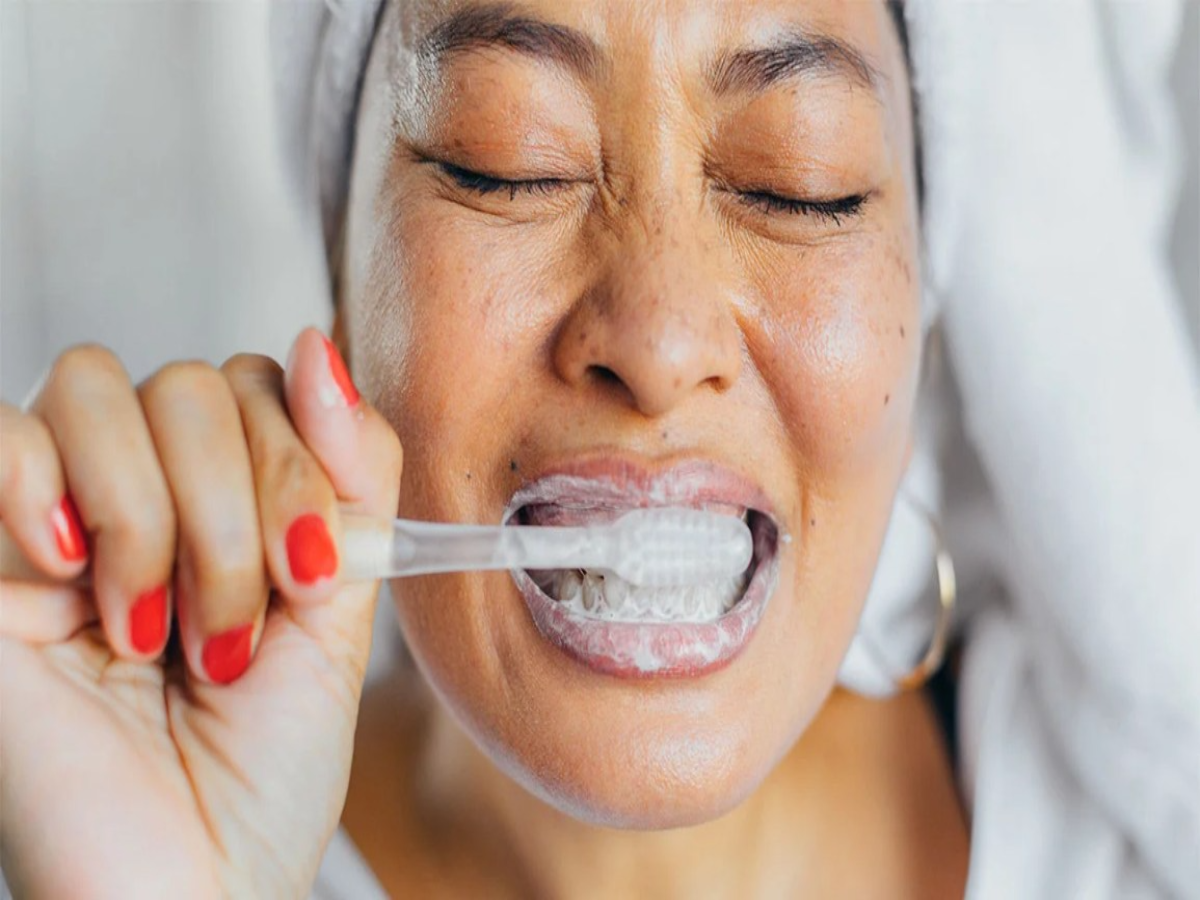Brushing Your : Taking care of your teeth is very important for your overall health. We all brush your teeth daily, but many of us do it the wrong way. You may not realize it, but small mistakes during brushing can harm your teeth and gums. In this article, we will explain what common mistakes people make while brushing and how you should actually clean your teeth properly.
Common Mistakes While Brushing Your Teeth
1. Brushing Too Hard
Brushing Your Some people think that brushing hard will clean teeth better. But that’s wrong. Brushing too hard can damage your gums and remove the enamel (outer layer of teeth). This may cause tooth sensitivity and gum bleeding. Always brush gently.
2. Using a Hard-Bristle Toothbrush
Hard bristles can be harsh on your gums and teeth. Dentists recommend using a soft-bristled toothbrush. It cleans effectively without damaging your mouth.
3. Not Brushing Long Enough
Many people brush for just 30 to 40 seconds, which is not enough. You should brush for at least 2 minutes. Divide your mouth into 4 parts and spend 30 seconds on each part.
4. Brushing Right After Eating
After eating, especially acidic foods like citrus fruits or soda, the enamel becomes soft. If you brush immediately, it can wear off the enamel. Wait for at least 30 minutes before brushing.
5. Not Cleaning All Areas
People often clean only the front teeth and forget the back teeth, tongue, and gums. Make sure you clean all parts of your mouth. Bacteria can hide anywhere.
6. Using the Same Toothbrush for Too Long
You should change your toothbrush every 3 months or sooner if the bristles are worn out. An old brush does not clean properly and may carry germs.
7. Not Rinsing the Toothbrush Properly
After brushing, always rinse your toothbrush with clean water and let it dry in open air. Don’t cover it immediately – moisture can help bacteria grow.
Right Way to Brush Your Teeth
Now that you know what not to do, let’s learn how to brush your teeth the right way.
Use a Soft-Bristled Toothbrush
Pick a soft toothbrush with a small head. It can easily reach all areas of your mouth, especially the back teeth.
Choose the Right Toothpaste
Use fluoride toothpaste. It helps protect your teeth from cavities and strengthens the enamel.
Brush for 2 Minutes
Set a timer or use an electric toothbrush with a built-in timer. Brush for 2 minutes, twice a day — once in the morning and once before bed.
Use Gentle Circular Motions
Do not brush in a straight back-and-forth way. Instead, move your brush in small, gentle circles. This cleans the teeth better and protects the gums.
Don’t Forget the Tongue
Your tongue can also carry bacteria, which causes bad breath. Gently brush your tongue or use a tongue cleaner.
Clean the Gum Line
Plaque often builds up where your teeth and gums meet. Tilt your brush slightly and clean along the gum line.
Rinse Your Mouth Properly
After brushing, rinse your mouth with clean water or a dentist-approved mouthwash to remove any leftover food or paste.
Other Oral Care Tips
- Floss Daily: Flossing removes food stuck between teeth, where brushes can’t reach.
- Visit Dentist Regularly: Go for a dental check-up every 6 months.
- Limit Sugary Foods and Drinks: Sugar feeds bacteria, which can cause cavities.
- Drink More Water: It helps rinse food particles and keeps your mouth clean.
Summary Table
| Good Habits | Bad Habits |
| Brush twice a day | Brushing once a day |
| Use soft-bristle brush | Using hard-bristle brush |
| Brush for 2 minutes | Brushing for less than 1 minute |
| Wait 30 mins after eating | Brushing immediately after meals |
| Clean tongue and gums | Ignoring tongue and gum line |
| Replace brush every 3 months | Using the same brush for long |
Final Words
Your teeth are with you for life, so take care of them every day. Brushing your teeth may look simple, but doing it wrong can lead to serious dental problems. By avoiding these common mistakes and following the correct method, you can keep your teeth strong, clean, and healthy.

